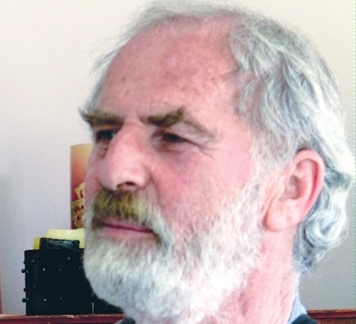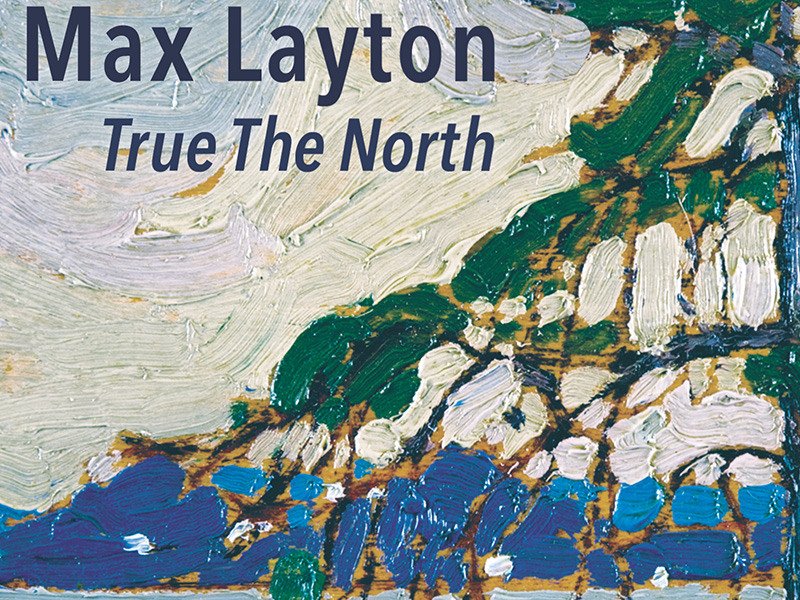Max Layton gives people who work in Canada’s fisheries, mines, logging camps and oil patches a voice on his latest CD, True The North.
Many of the songs on the album, his fourth, focus on the lives of working people in Canada and look back at historical events in our working-class history. The track Lockeport Lockout is about the Nova Scotia fishermen and fish-plant workers whose attempt to unionize in 1939 ended when the province called in the Mounties to break their strike.
Another track, Glace Bay, is the story of the 1979 Cape Breton mining disaster that killed 10 men. In Dancing in Mabou, a man working in Alberta’s oilsands longs to return to his home in Cape Breton, where jobs are scarce with the coal mines closed, the cod gone and the logging industry shut down.
A cultural divide exists between big-city elites on Canada’s east and west coasts and the people in the rest of the country, Layton said. People in the cities “don’t have a real connection to the rest of the country, where the real work and hard sweat happens,” he added.

Layton, 71, has seen life from both sides of this cultural divide. He left home at 17 and spent 10 years working various blue-collar jobs across Canada. He apprenticed as a car mechanic, was a logger in British Columbia, picked tobacco in Ontario, and laid railway track in northern Manitoba. He busked, singing and playing the guitar in coffee houses whenever he could.
In the mid-1980s, Layton wrote a successful book about how to invest in gold, which led to a job as vice-president of a bank, as well as a cushier lifestyle.
“There’s a kind of indifference on the part of the elite at that socio-economic strata that’s able to ignore the very real life problems of the rest of the country,” Layton observed. “That’s one of the things I’m trying to correct by speaking for those people, because largely they’re voiceless. But I’m one of them and I’m talking.”
READ: BEN CAPLAN MOVED BY ROMANI, CANTORIAL MELODIES
Layton conceived True The North to mark Canada’s 150th birthday this year, though he said he had written the songs before ever thinking of putting them together for an album. He said American songwriters have done a marvellous job of mythologizing places in the United States, while we have few songs that give us a warm feeling about specific parts of our country.
True The North includes a celebratory song called Talkin’ Joual, about the healing of the two solitudes, French and English Canada. It’s written in “Franglais,” a mix of Québécois French and English. Two tracks describe the British conquest of Louisbourg – Glooscap, written from the Mi’kmaq perspective, and Marie-Helene from the Acadian viewpoint.
The album opens with Layton’s tribute to artist Tom Thomson, marking the 100th year of his death in Algonquin Park. Although most of the subject matter of True The North is serious, this folk-blues CD does have some light moments, and Layton has a pleasant, relaxed voice. The band – Layton and Bob Cohen (the album’s producer) on guitar, Ed Michael Roth on digital accordion and Sharon Watkin as backup vocals – does justice to the beautiful melodies Layton has written.
Layton has dedicated True The North to his former guitar teacher, Leonard Cohen, who was friends with his parents, poet Irving Layton and painter Betty (Boschka) Sutherland. When Max was 13, his mother gave Cohen one of her paintings in exchange for guitar lessons for her son.
“He was a very patient, very kind teacher, 100 per cent focused on you during the time of the lesson,” recalled Layton, who regards Cohen as his main musical influence. After his father died in 2006, Layton stayed in touch with Cohen, sending him his poems and CDs. Layton’s previous album, It’s a Mystery to Me, was featured on Cohen’s website. n
Layton performs at the Tranzac Club in Toronto with his band and special guests every second Sunday from 5 to 7 p.m. Visit www.maxlayton.com
